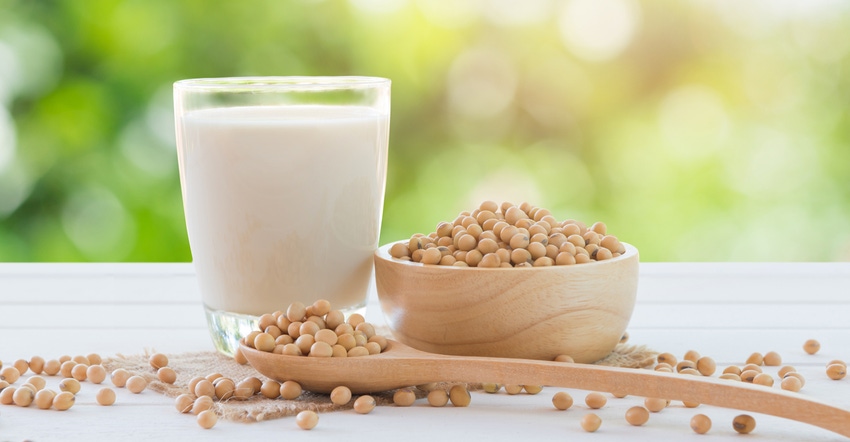Protein has made its way into more beverages, such as coffee creamer and water; beverage developers are innovating to make well-rounded products for athletes and active consumers.

The protein market is saturated, and the popular ingredient has made its way into products previously not associated with protein, such as coffee creamer, salad dressing, pancakes and even water. Beverage developers are responding to demand with innovative uses of different protein sources to make well-rounded products for athletes and active consumers.
Milk protein is the most basic form of dairy protein in that it is the primary byproduct of acidifying and filtering milk. Cow’s milk consists of 82 percent casein and 17 percent whey. It contains all nine essential amino acids (EAAs), and is common for protein beverage formulation and meal replacement beverages. It’s also used to improve the nutritional value, sensory and functional properties of a beverage.
Whey protein is made from the liquid by-product of cheese production. It’s used in protein beverages and as an additive in processed foods like breads, crackers and infant formula. Whey is a preferred protein source for many athletes because it contains more branched-chain amino acids (BCAAs)—including leucine, which is an important amino acid in signaling muscle protein synthesis (MPS)—than other types of protein, is rich in vitamins and minerals, is rapidly digested and increases muscle growth by stimulating MPS within the first few hours of consumption to support recovery (J Can Chiropr Assoc. 2009 Aug;53(3):186–193). There’s been substantial innovation with whey protein products over the last few years, including whey in products like water and hot chocolate.
Casein is a major component in milk, cheese, yogurt, ice cream, coffee creamer, protein powders and shakes, infant formula and more. Casein is a popular ingredient for athletes in recovery beverages because it contains all nine EAAs and is slow digesting.
Soy protein is made from soybean meal that has been dehulled and defatted. It’s used in food and beverages like plant-based meat alternatives, milks, protein shakes, protein powders, nondairy creamer, salad dressings, cheeses and infant formulas. Some beverage brands have shied away from using soy protein, though, because of consumer concerns that it could impact hormone balance.
Pea protein is experiencing significant growth, largely thanks to demand for plant-based food and beverages. It’s extracted from split peas and is used in products such as meat alternatives, vegan cheeses, yogurts, milks and snack bars. It’s also commonly used to boost protein content, when developing products like nut milks.
Brown rice protein is made by treating brown rice with select enzymes that cause the carbohydrates and protein to separate. It’s primarily used as a vegan, allergen-free alternative to whey, casein and soy in sports nutrition products, like powders and shakes. Brown rice protein is safe for consumers with lactose, gluten and legume allergies. Like casein, brown rice protein is slowly digested and contains all the necessary amino acids (although it’s low in lysine). It’s also high in fiber and vitamin B.
Learn more about formulating beverages with these proteins in INSIDER’s Protein Innovation Digital Magazine.
Laura Dembitzer ([email protected]) is the marketing director at Imbibe, a Chicago-based flavor and beverage development company. Dembitzer works with beverage brands and retail chains to help them innovate and create products from the initial stages of development all the way through to commercialization and launch.
About the Author(s)
You May Also Like






.png?width=800&auto=webp&quality=80&disable=upscale)